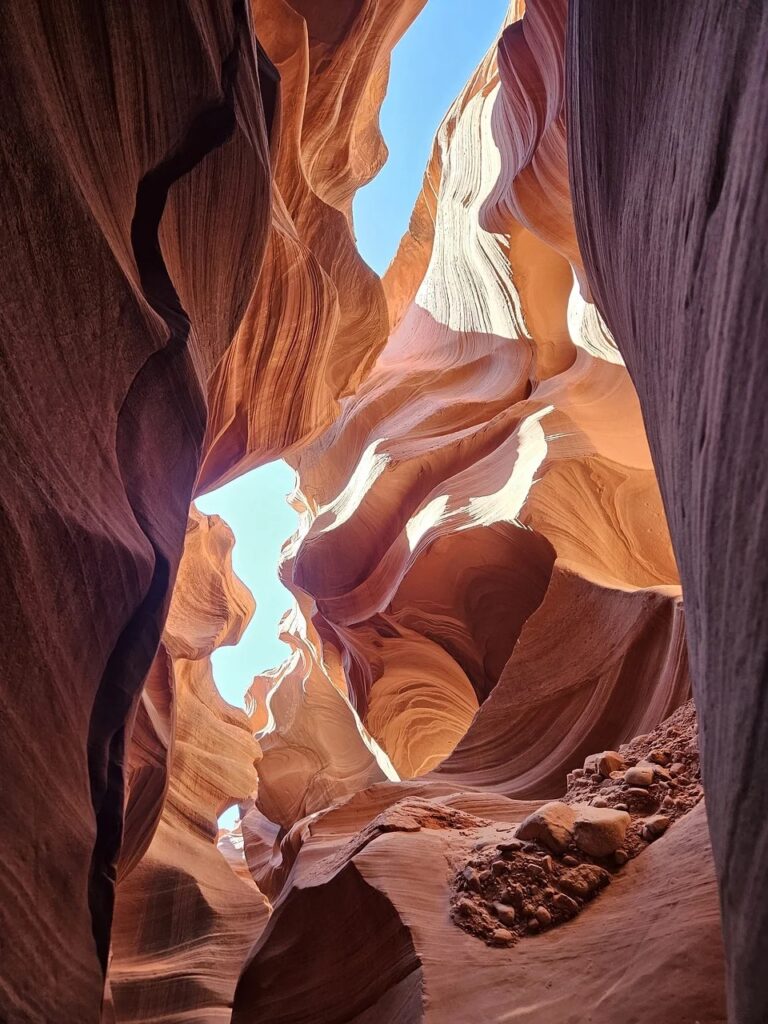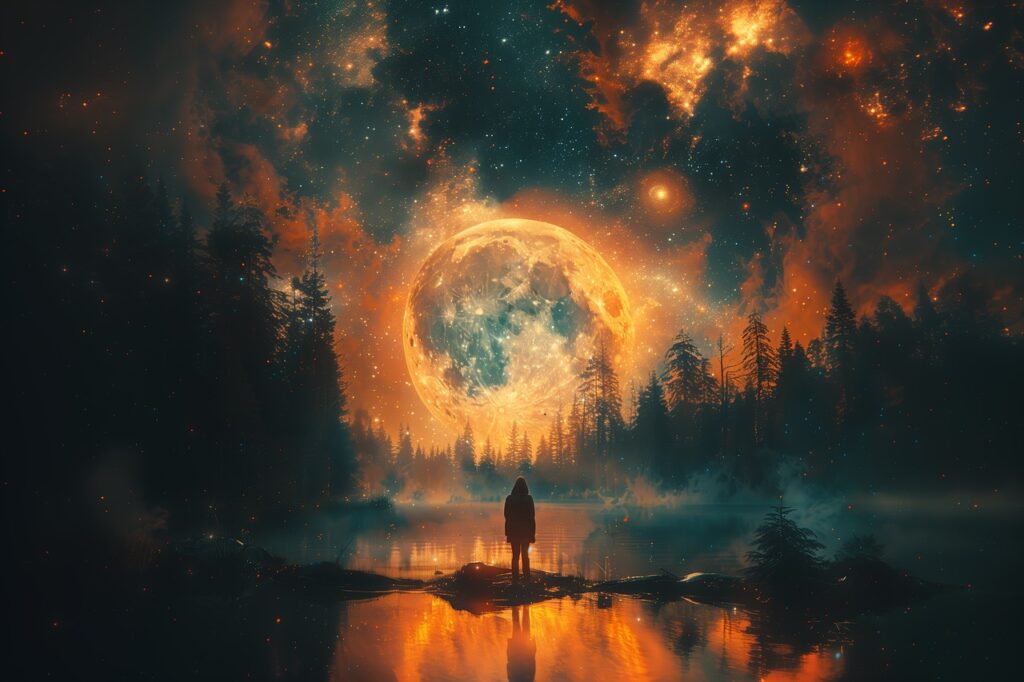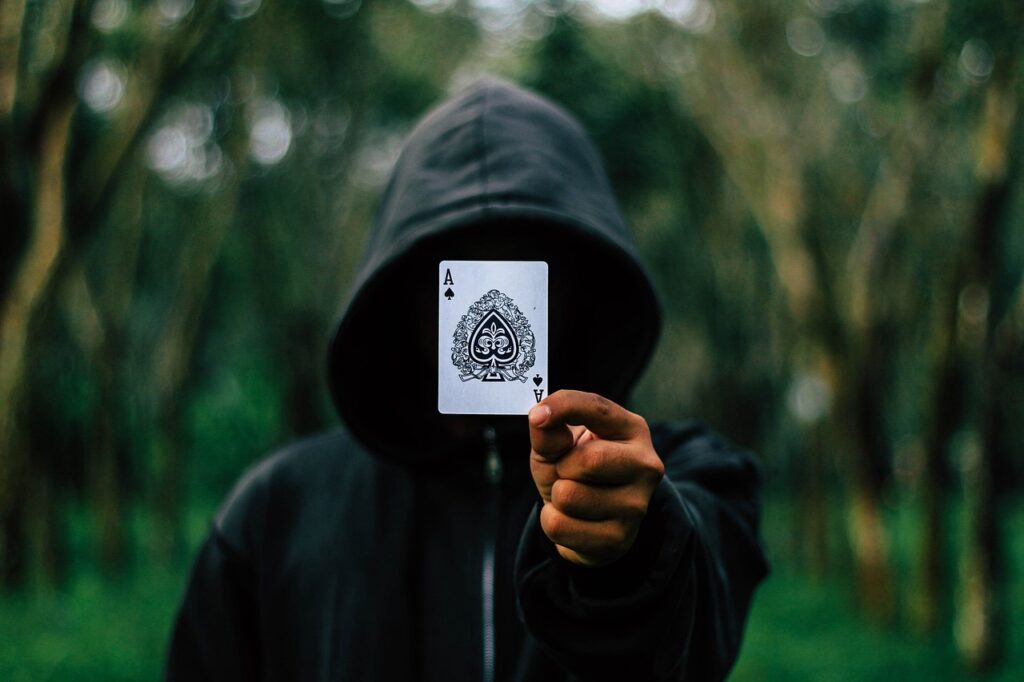Hi Mary–
Hope you are doing well! I am hoping you can answer a question for me. I have a long history in mysticism of varying types… (editor note: lists out Jewish mysticism, Theosophy, Zen Buddhism, Gurdjieff, and varying meditation methods).
It very much seems, to me, that what might be called “occultism” or using magic is the antithesis of the goal of the mystic. However I see that you, like many others, have a substantial background in it. To me magic seems something of a selfish act, a way to “get things”, the sort of materialism that mysticism denounces… I am curious your thoughts…
– P
note: letter edited for brevity
Hi P-
Great question, and it is one I see a lot of people confused by. In some ways it is difficult to talk about magic or occultism globally, as much like mysticism, there are a lot of different paths (or streams) that one can take. However, when you study those varying streams– much like mystical or religious study– what you find is a lot of traditions pointing to the same thing, but within the context of the particular myths, stories, and daily reality of those who lived them out.
In many cases it is like the story of the blindfolded people all at different parts of an elephant, all describing the same elephant (except one describing the trunk, one the body, one the tail, etc.) In other cases magic arises in the same exact ritualistic elements or understandings about what works, but with slightly different flair due to things like differences in local herbs and the history and lived reality of the people who revealed them.
We can also add on how the magic that is most well-known arose from Greek, African, and Middle Eastern sources and basically migrated along with the population of humans. Basically, when people visited new lands, they found the magic… or when people immigrated, were forcibly moved, etc. they brought their magic with them. And then the magic changed to meet the people in their new concerns, their new daily lived reality, their new relationship with the spirits of the land (including local herbs).

So to actually get to your question. A lot of what has come across popularized as “magic” comes from what might be termed as “lodge magic” (the OTO, the Golden Dawn) and its outgrowth. Aleister Crowley famously defined magic as “the science and art of causing change to occur in conformity with Will” and this quote formed the basis of what people think magic, and the purpose of it, is.
I still think that it is quite a good definition, by the way. It does fly in the face of the sort of “mystic non-doing” that has been popularized, and so it is understandable the sort of backlash by well-meaning moralists of the spiritual variety that think of magic as being coercive, or so directive that it is more about the individual and whatever selfish sort of “things” they want.
But let us actually deconstruct this.
In magic you may have a desired outcome but typically the more you keep it open, the better the results will be. This has a lot to do with phrasing, intention, and letting go of a desired outcome that is too specific.
The results of magic often come back in surprising ways. For example, let’s say that you do some form of magic to get people to stop walking all over you.
The result of that is likely to be that a friend mentions the perfect counselor for you so that you can work on stopping people pleasing and learning to say “no” than it is for your friends or family to change.
That is but one example, but it shows how outer ritual and magic typically results in changes within, and that then creates the changes in outer circumstance that we desire. What magic often does is to create opportunity (that we then have to recognize), or it brings to the surface what within us needs to change to achieve the goal we were looking for.

We used to define magic as “high” and “low”. There has been quite a bit of discussion over the years about the nature of colonization and racism in terms of those designations. Basically, “high” magic being the sort of colonizer “lodge” magic filled with white European types focused on intellectualization (for a fun look at this, see Jonathan Strange and Mr Norrell), and “low” magic meaning folk magic, or the magic of the colonized (“black” magic).
There is quite a bit of magic that is concerned with very physical and materialistic things. I do find that people tend to look at this from a place of privilege, however, and this needs to be reconsidered.
If you are struggling with finances to the point that you need to call on your ancestors, or do a spell or ritual, to keep your lights on or pay your rent, there is nothing morally wrong with that.
Likewise if you are in a position of powerlessness and an abusive family member, spouse, boss, or other power-filled individual is making your life miserable, magic can let you do divination (ask cards or spirits) what the right course of action to take can be against that person.
From a position of power, such things are something to look down your nose at. Being well-fed and served by the justice of privilege allows such morality.
If your only choice– in a job you need to keep or in a situation in which the person who is harming your child is not going to get justice– is to put their name in your shoe, or to nail them energetically/spiritually to a tree, then you do what you have to do.

It is funny as I am recalling ages ago I was in a group of spiritual folks and I mentioned that a teacher of mine at the time utilized a “mirror box”– something to bind a predatory individual who was harming children– from creating further harm. A man in that group took great offense to this, and from that point on took up a campaign of gossip and slander against me.
It is funny what we are blind to, and how the energy of gossip and slander this man was putting out into the world were creating toxic energies that he was unaware of, or that people in that group would do things that were morally ambiguous and selfish at best, such as working with larger things like disasters or putting out “bundles” into the land or sea without wondering if the mountain, lake, or dirt wanted their (albeit pretty) trash.
I am telling this story because it highlights how much our sense of morality and righteousness can come from a place of privilege and misunderstanding of the daily reality of others. There is a reason why justice workings are prevalent in magic, why charms to keep away negative energies (like gossip or jealousy) or to bring in material necessities are so popular.
They do require an authentic connection to the Other, which is where a lot of folks fail at this sort of stuff, though. The idea that you can do a squiggle on paper the first time (a sigil) and get money or goods highlights wishful thinking rather than the type of know-how and connection, intention and faith, that such works require to be effective.

So let’s talk about other kinds of magic and their purpose as well.
I often point people to occult or magical curriculums because they have the best progressive way to truly educate yourself in opening up your senses and becoming a more conscious person of the world around you.
For example, I started with Franz Bardon’s Initiation into Hermetics. There are certainly other books out there (another popular one is Donald Kraig’s Modern Magick… there is also the amazing curriculum of Josephine McCarthy… there are a few others that cannot come to top of mind. I can create a reading list if anyone is interested).
What Bardon’s book did for me was to give me a course of study that allowed for me to attune and hone my already very open abilities. My issue was not “opening up”, it was that I was going from “A” to “Z” with no idea how I got to “Z”. What magic offered me was a way to slow down, to understand what I was sensing. It also offered me discipline and taught me patience, which someone like myself was in dire need of. Magic is not instantaneous. It can take days, months, years, or even decades to put something out there and to see how it will return to you.
For others a magical curriculum is the best way to learn how to open the psychic senses. For those who are willing to spend a bit of time, magic can offer the ability to open the senses, work with dreams, and to learn how to sense the flows of reality.

Another facet of magic is ritual. These rituals can open you up to divine aspects of yourself (for example, the much lauded Holy Guardian Angel). They can also connect you to specific spirits, beings, and forms of consciousness that is very direct. Consider it sort of like having a telephone and a direct line.
I find that shamanism or mystical connections open you up, or let you explore spiritually, but who shows up can be a sort of crapshoot. This is true even if you have established spiritual connections, by the way.
The purpose of this type of magic is very similar things to what we might call higher consciousness states, direct revelation of the divine, or “enlightenment”.
What interface with spirits and beings through these types of rituals does is to drastically shift your consciousness. It moves you away from your personal bubble, and human-centric thinking, to see reality from a much different perspective.
The sort of changes that this creates are quite extraordinary. I will also mention that the mystic, despite their claims to the contrary, tends to have quite the difficulty breaking out of their bubble, or human-centric views on reality. Truly connecting through magical ritual will bust through this better than anything I have ever experienced. The result is the “death of ego” that many mystics are looking for, but find in name only.

One last thing that I find helpful to conceptualize. I do love the direct path of the mystic, and have truly found myself there. At a certain point if I had to look at another correspondence chart for magic (hours, times, days to do something specific) I was going to tear my hair out.
But picture a hedge. Within this hedge is what we consider to be “reality”. There are times and days where specific beings, energies, flows of energies come through this hedge. Magic has done a good job of really figuring this out. When Jupiter energies will be able to flow through, for example. In this way workings can be done for Jupiter at their height.
Shamanism seeks to journey outside of this hedge. Journeying is actually a bit more difficult to do than people think, and ecstatic states from shamanism and witchcraft and other magical rituals to truly move beyond this hedge typically require a natural aptitude towards doing so (or the type of tenacity to spend years questioning if you are relying on intuition within the hedge or are truly venturing into the Other).
For people truly looking to interface with the Other, it can be much more successful for them to remain within the hedge and rely on the work of others who have determined what time specific energies are going to flow through to us.
The easiest way I suggest people start with this is typically going to be the cycles of the moon because we can readily observe them. Consider the moon as the sort of “minister of magic”, when it is full we can have a good place to notice the Other, as well as how the moon cycles affect the type of spiritual energy within our bodies.
I hope that helps, P. This is a topic I have been thinking about for quite a bit, as it is quite misunderstood.
(And one last thing. There are people out there who do justice workings and magic for others. I am not one of those people)
Mary Mueller Shutan is a spiritual teacher and author. Her books include Managing Psychic Abilities, The Spiritual Awakening Guide, Shadow Work for the Soul, and The Shamanic Workbook series.

Hi Mary,
Thank you for sharing more of your thoughts/views. I look forward to reading your insights on the subject of evil. I have seen some really interesting discussions about it. It will be fantastic to read your perspective. Thanks again!
—-Fang
Hi Fang-
I would agree with you– the sort of negative archetype of the magician is that seeking of power. Even with such figures as Crowley however there is a thought of doing what we want, as long as it is not harmful/doesn’t interfere with others. His understanding of “every one of us is a star”- meaning divine in origin, and how we that shifts how we should interact with one another– is not terribly different of beginning understandings of oneness and other concepts you will find with the “enlightenment” folks.
But yes, there certainly are all sorts of people who utilize magic for really dark means, such as destruction of another (individual or organization) or whose hunger for immortality or some large magical construct creates quite a bit of destruction in its wake.
I could go on, but will be doing a blog on the concept of evil at some point, which this ties into.
Arguably the negative archetype of the mystic is one of disassociation, which renders the individual incapable of seeing their shadow side and of truly becoming human. It also means that anger turns into passive-aggressiveness and so forth, because it is unrecognized by the individual, and that there is a strain of narcissism/self-absorption that is pretty pervasive in this group (so a big ego despite all the talk of moving beyond the ego).
I do think that both groups could use a solid foundation in the sort of magic-enlightenment that lets one become magic, and renders one completely human and ordinary. Over time, ideally, both paths lead back to the body and to the present moment… but you are totally right that not all people are looking for that culmination, and forming compassion for people who just want to experience a bit less suffering, or to experience justice in a world that is not fair or equal, is something that I suggest all folks on the “enlightenment” path realize.
Great thoughts! Thanks for sharing,
Hi Mary,
This is a great blog. I enjoy it so much. When I first started looking at folk magic I also had the thought that people who pursue this type of paths are “lower than” those who are on the enlightenment path (I mean enlightenment in its real sense). After some time I realized that not everyone is even interested in the path of enlightenment. There are folks who have lived in extremely unfavorable, even impossible conditions. It is understandable that they use magic to make their lives a bit better. Now I am of the view that these spiritual paths should just be seen for what they are. Josephine McCarthy in “Magic of the North Gate—Powers of the Land, the Stones and the Ancients” also has a discussion of morality in her essay “The Magical Understanding of Good and Evil”. She voiced very similar opinion as you did in this blog: our ethics are a product of our living circumstances. A lot of times people make the “ethical” decisions because they have the choice. It is wonderful to see teachers like you and Josephine McCarthy showing compassion, kindness and consideration for people who have to deal with realities where they do not have privileges and where they encounter a lot of hardships. With that said, I also know there are people who use magic to pursue whatever they want with reckless abandon. I think these people may benefit from certain elements of the enlightenment path.
—Fang
Hi Catherine-
Glad the blog was relevant to you (and thanks for the comparison! Good company indeed)
Thanks for this (very-relevant-to-me) post.
I’m so glad you mentioned Josephine McCarthy. Her Quareia course is incredible, and so is her blog. And you share with her a grounded, relevant-to-this-life-as-it-is-right-now, no-nonsense approach that is essential to avoid the commodification of the sacred.
Hi Nicole-
I have set up a list for occult curriculum (as well as other books/lists when I get the time) on my Goodreads profile: https://www.goodreads.com/review/list/170355284-mary-shutan?shelf=shamanic-occult-curriculum
You can access it even if you aren’t on Goodreads.
It will give you a good range of books to choose from. I hope that helps!
PS. If you haven’t read Emma Wilby, I really like her work for history/background. If you want something more intensive history wise, I would recommend Jake Stratton-Kent
Glad it was helpful to you, Jimmy
Hi Mary,
As always, I appreciate a deeper understanding of topics like this; thank you for sharing your wisdom.
I would appreciate you sharing your resources-I have delved into most of what you referenced, and even from other courses, but I would love to learn of more vetted resources on this topic.
Thank you,
Nicole
Thank you! I always wondered about this, provides some good perspective.